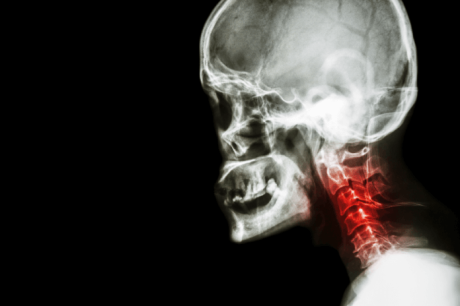 Dizziness of the neck is an imbalance caused by abnormal afferent movements of the neck. People with CD often complain of vertigo, head movements accompanied by neck pain and headaches can exacerbate vertigo. Cervicogenic dizziness was originally introduced as vertigo of the neck. If you are anxious, neck dizziness may occur. The vestibular system plays a role in detecting the position of the body and the surrounding motion. The vestibular system includes the inner ear on both sides, specific areas of the brain and the nerves that connect them. This system may cause dizziness if problems occur.
Dizziness of the neck is an imbalance caused by abnormal afferent movements of the neck. People with CD often complain of vertigo, head movements accompanied by neck pain and headaches can exacerbate vertigo. Cervicogenic dizziness was originally introduced as vertigo of the neck. If you are anxious, neck dizziness may occur. The vestibular system plays a role in detecting the position of the body and the surrounding motion. The vestibular system includes the inner ear on both sides, specific areas of the brain and the nerves that connect them. This system may cause dizziness if problems occur.
If the vestibular system is abnormal, symptoms of vertigo may occur. If there is already a tendency to worry, vertigo and anxiety in the vestibular system may interact and symptoms may worsen. Most times, anxiety and vertigo treatments take place together to improve the patient’s health.
Get involved with physical therapy programs
The goal of this treatment is to make the vestibular system work as much as possible and treat symptoms of vertigo in an environment that causes anxiety. The patient will control vertigo and improve their learning abilities to control symptoms by stimulation. Stimulation does not make the symptoms uncontrollable because it pauses and acts to provoke the symptoms.
Stay hydrated throughout
Dehydration can cause dizziness. The body needs about eight cups of fluids a day. This includes all liquids, but water is the best choice because it is pure and does not contain substances that can be harmful. Diuretics increase the amount of water so that the salt of the body turns into urine.
Consider Aromatherapy for your anxiety
Some people think meditation and aromatherapy can significantly relieve anxiety. There are many studies on the effectiveness of aromatherapy as a way to relieve anxiety. Studies have shown that we can use a blend of Roman essential oils including lavender to reduce anxiety and improve sleep quality.
Seek help from professionals
In today’s world, acceptance and understanding of mental health is growing. In addition, self-help and personal care are more important. There is nothing wrong with this: talk to a health professional and find the right medication that suits you best, there is nothing abnormal with that.
Consider changing your lifestyle
If medical drugs do not solve the problem of vertigo, it may be necessary to try different ways of changing one’s lifestyle. These changes can be as simple as drinking more water to stay hydrated, or lying down when you feel stunned. Other non-alcoholic fluids are also advisable.
Have some Ginger tea
It reduces the effects of vertigo on manual re-positioning. You can immerse the ginger root in boiling water for a few minutes. You can use honey to sooth the bitterness. Drinking ginger tea twice a day can reduce dizziness, nausea and other symptoms of vertigo.
Be Mindful
This can be useful as part of a comprehensive program designed to reduce cognitive-behavioural therapy-based rotation, including an understanding of your breathing and thoughts, and other simple techniques. Remember, it is possible to diagnose cervicogenic dizziness.

 All too often we are prescribed drugs to help with a problem, and those drugs can then go on to cause us side effects. Sometimes these side effects can be just as troublesome as the condition they were prescribed for, and if you’re taking
All too often we are prescribed drugs to help with a problem, and those drugs can then go on to cause us side effects. Sometimes these side effects can be just as troublesome as the condition they were prescribed for, and if you’re taking